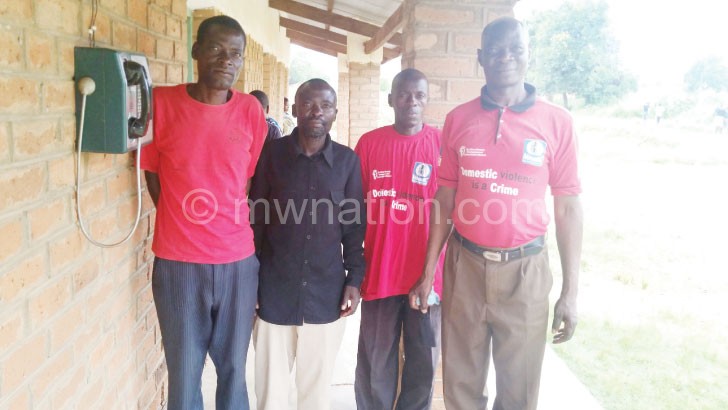From wife batterer to marriage ambassador
He was one of the most abusive husbands in Traditional Authority (T/A) Kameme in Chitipa. Mabvuto Sibale, 44, would beat up his wife to a pulp every time they had a disagreement.
In 2002, after less than seven years in marriage, he eventually chased his wife out of their matrimonial home. Sibale claimed the wife was lazy and he could not put up with the laziness.
What he did not realise when he chased his wife, who left with nothing but the clothes on her, was that he had given himself a burden of looking after their two children. At the time, the children were five and two years old. The youngest had just stopped breast feeding.
“It was very cruel of me to chase my wife and force her to leave the children. By chasing her I thought I had dealt with her, but the truth is, the problems had just begun,” he says.
Sibale says he struggled to balance home life and pieceworks, but worst of all is that he became the village laughing stock.

“People wondered what my motive was,” he says.
He recalls leaving the children one afternoon without food.
“I went to look for piece work and I thought it would not take time. I ended up working the whole day and when I came back home my children were very hungry, and so was I,” Sibale says.
However, his life started to change when he was approached by the Gender Equality and Women Empowerment (Gewe) arm called Men for Gender Equality (Megen).
“It was not them per say who made me to have a change of heart, but what my children were going through. I had no one to take care of them when I was not around. The situation forced my little ones to turn into beggars,” he explains.
When the Gewe project was introduced in 2013, Sibale’s wife dragged him to court on charges of wife battering. The charges were later dropped after Sibale promised not to do it anymore.
“I always felt my wife was lazy as she did not take issues of farming as a priority. I now realise there was a better way of dealing with such issues than violence,” he says.
Now Sibale is a Megen ambassador and is busy going round the villages telling men to stop violence against their wives or face justice. He is vice-chairperson of Kameme Megen Group.
Shenton Kalua, medical technician at Kameme Health Centre and chairperson of the Megen, says gender-based violence (GBV) issues were common when the group was being set up.
During a recent tour of Chitipa to assess the impact of the project, he expressed concern over the huge cases of wife battery that were being reported.
Kalua says women were leaving their marriages and putting children at risk in the process.
“This programme has further helped in bringing out GBV issues. Men in the villages now know that being a man or exercising authority does not require violence,” he says.
Gewe is a European Union-funded project being implemented by the Ministry of Gender, Children, Disability and Social Welfare.
Emma Kaliya, chairperson of Non-Governmental Organisation-Gender Coordinating Network (NGO-GCN), implementing partner of Gewe in Chitipa, hailed the project for the role it has played in making women aware of their rights and help men understand their roles at home and at work.
She says women have suffered abuse for a long time because they did not know where to report and the men felt there was no law that could stop them from beating their wives.
“Some of these things are to do with culture. We are not here to change it, but if there are some aspects of it which are harmful then we are advocating they be gotten rid of as they are a hazard to life.
“Through the Gewe project, we want to foster economic empowerment to both the man and woman, so that if anything happens one party must be economically stable, hence improve poverty levels in the country,” says Kaliya.





